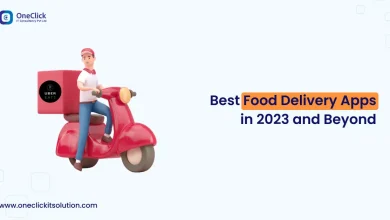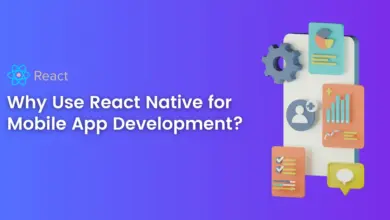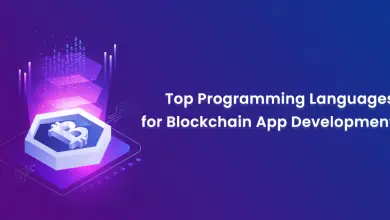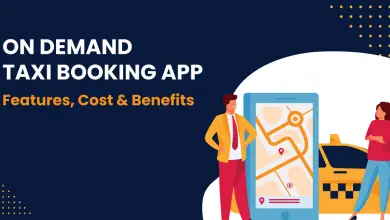What Should You Consider for Developing Foldable Apps?
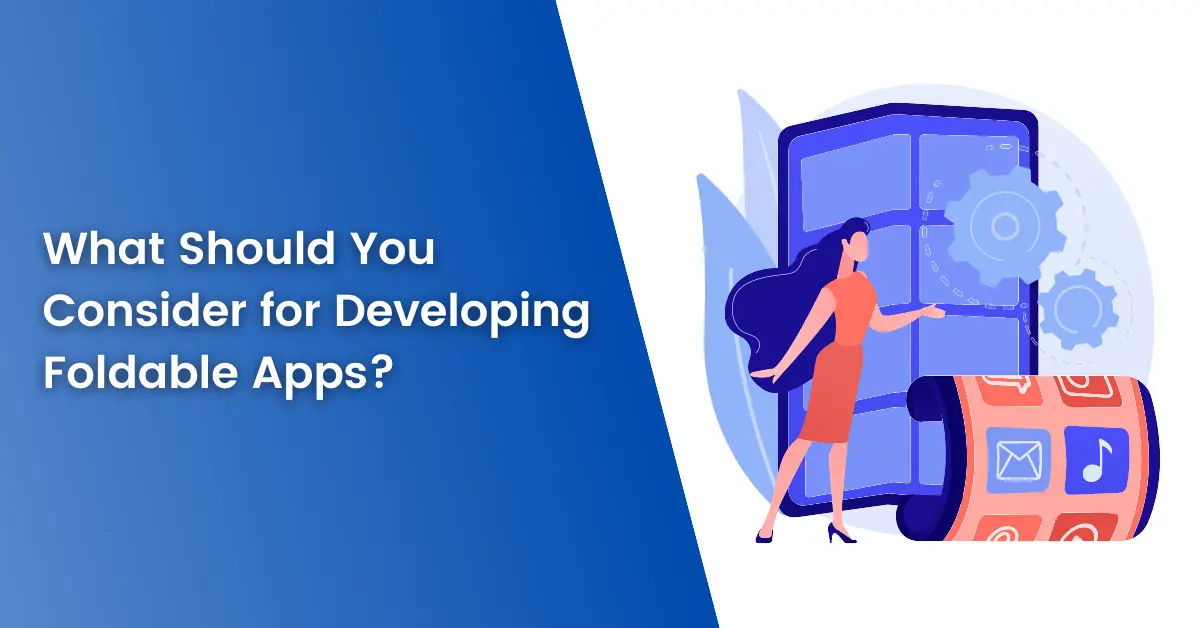
Introduction
Samsung stunned everyone when it released its Galaxy series of foldable smartphones in 2019. Manufacturers started to enter the foldable smartphone space and released multiple foldable devices. The major players of foldable smartphones today are Samsung, Huawei, Motorola, Royle, and Microsoft. The latest release of the Samsung foldable smartphone is Galaxy Z Flip. If you are unaware of what foldable smartphones are, here you go.
Foldable smartphones are phones whose screens can be folded into a double-size-full-screen display. The screens of such phones increase in size when opened and can be folded back to a smaller size when not needed. Such phones give users a lot of space for browsing, and watching videos, and a feel similar to tablets but with foldable screens.

Statistics of Foldable Phones
Since the release of foldable smartphones, it has greatly influenced the extent of mobile app development. Before jumping into app development let’s have a look at some statistics:
- The foldable smartphone market continues to surge, with shipments reaching 3.2 million units in 2019 and projected to soar to an impressive 50.1 million units by the end of 2024.”
- Smartphone users are likely to spend 90% of their time on apps.
- Foldable smartphones are expected to register a CAGR of over 21.3% for the forecast period of 2019- 2022.
Source:Statista
Impact of Foldable Smartphones on App Development
The increasing popularity of foldable smartphones has altered the mobile app development process. The steps taken to develop an app for a device with a single screen are different from the steps taken for a device with both small and large screens. Designers and developers shall have to face challenges in developing apps for different types of multi-window. Some of the app categories to consider how foldable phones are changing the app development process.
- Video streaming apps can use the extra space to show videos in a larger orientation and give extra controls in the app.
- Banking apps can be designed to show multiple bank account details in the multi-window screen of the app.
- Calendar showing apps can give a complete view of the month rather than of the week on the screen.
- Content creators can access multiple apps at one time. They can watch a video on youtube, chat on WhatsApp, read emails, and book tickets, all at the same time.
- Business apps can also include advanced features like reading a blog while making a presentation on the same screen.
- Gaming apps can also include more & bigger controls on the screen. It will give more space to chat with a friend and also play games at the same time.
Things to Consider While Developing Apps for Foldable Phones
As foldable phones provide larger screen space, there will need to provide users with a larger screen experience, app continuity while the user switches between the screens and a better user experience. Let’s see some of the things to keep in mind while developing apps for foldable phones.
1. Design for Foldable Phones
There are 2 states of the foldable phone – unfolded and folded state. Designers have to keep both states into consideration while designing apps for such phones. The unfolded state will give more space on the screen, so designers have to keep important UI and UX elements within the thumb and other finger areas. Larger screens will give an amazing viewing experience to users which means designers have to undertake their journey on wider and bigger screens.
2. App Continuity
The main concern for a foldable phone is to allow the user to continue the app or screen activity when they switch between the 2 states. There have to be minimal to zero interruptions or lags while transitions. Developers must focus on the dynamic resizing of the app. It can be done by keeping resizeableActivity=true in the code. If you set resizeableActivity=false, it means that the platform does not support multi-window. The app must resume in the same location and state as left. Dynamic resizing will result in improved flexibility regardless of the platform.
3. Screen Ratio
The screen ratio can be a crucial factor in the app development process for foldable phones. In foldable phones, the form factor can vary from a super high long and thin screen to a 1:1 ratio. App developers can try max aspect ratio and min Aspect ratio to test the highest and lowest ratios handled by the app.
4. Multi-Window
As we have seen, foldable phones allow us to use more than 2 apps at the same time and also share content within them. Developers can consider drag and drop within the apps as a new factor. In android 9.0 and earlier versions, only one app is in active mode while others used to pause. In android 10.0 all the activities remain in a resumed state when the device is in a multi-window state. This is called multi-resume.
5. Multi-Display
Multi-Display brings more than one screen for foldable screens. It allows users to move from one display to another just as multi-resume. The app should automatically run a particular display the moment it is launched on the screen. Developers should be ready to modify layouts and resources for the displays. Developers should also focus on activity vs app context, display cutouts, and use of a secondary screen.
6. Test & Test
After the development of your app, you have to ensure that the app passes all the test cases in multiple environments. You should test how the app responds to the multi-window, multi-resume functionality, resizing & new screen ratios, and configuration changes. Identify the issues and lags in transition and get them fixed properly before launching the app. Rethink and revisit your test cases.

To Conclude
There are multiple challenges and things to consider in app development for foldable smartphones. As we can see the rising popularity of foldable phones, developers & designers need to buckle up and get ready to deliver the high-quality experience expected from end-users.
If you are looking out to expand your existing app users or create a new one with multi-platform support like foldable phones, then consider OneClick IT Consultancy as your helping hand. Our team consists of experienced and skilled developers, managers, testers, and designers to provide an end-to-end solution for your app aligning with your business goals. Connect with us to know more.


